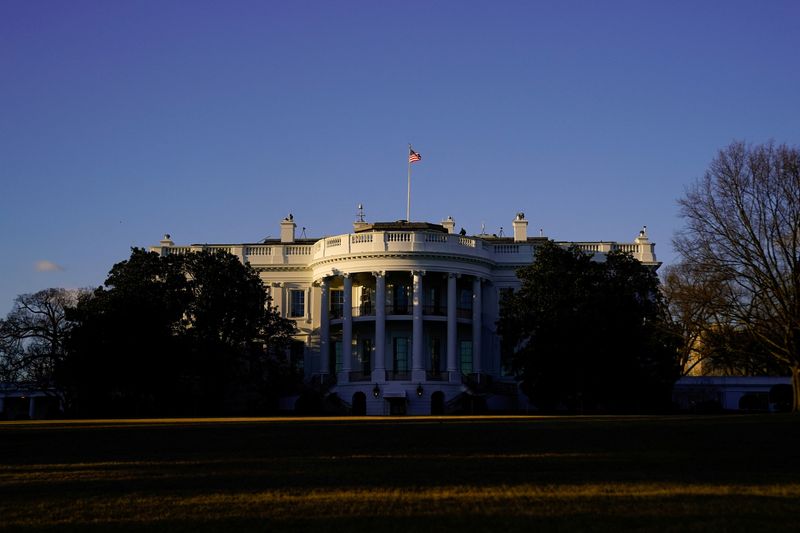U.S. freight railroads say board wage recommendations will guide worker contract agreement
2022.08.17 18:44

FILE PHOTO: The White House is seen at sunset in Washington, U.S. March 6, 2021. REUTERS/Erin Scott/File Photo
LOS ANGELES (Reuters) – The committee representing U.S. freight railroads in labor talks with their union workers on Wednesday said the settlement recommendations from President Joe Biden’s emergency board represent “the most substantial wage increases in decades,” but that they are ready to reach agreements based on the findings.
The National Carriers Conference Committee (NCCC), which represents railroads including Union Pacific (NYSE:UNP), Berkshire Hathaway-owned BNSF and CSX (NASDAQ:CSX), have been in contract talks with unions representing 115,000 workers for more than two years. Biden’s presidential emergency board (PEB) released its findings to interested parties on Tuesday.
“The railroads are prepared to meet with the rail unions and reach agreements based on the PEB report without delay,” the NCCC said.
While the board’s recommended wage terms significantly exceed those proposed by the carriers in this round, NCCC said, “it is in the best interests of all stakeholders – including customers, employees, and the public – for the railroads and rail labor organizations to settle this dispute and prevent service disruptions.”
The NCCC said the board recommendation would increase wages by 24% during the five-year period from 2020 through 2024, with a 14.1% wage increase effective immediately.
The recommendations also include five annual $1,000 lump-sum payments, adjustments to healthcare premiums, and limited changes to work rules. A portion of the wage increases and lump- sum payments would be retroactive, resulting in more than $11,000 on average in immediate payouts to employees.
If implemented, average rail worker wages would hit about $110,000 per year by the end of the agreement. Factoring in healthcare, retirement and other benefits, employees’ total compensation would average more than $150,000 per year.
Union Pacific and CSX shares were both down 1.2% on Wednesday morning.








